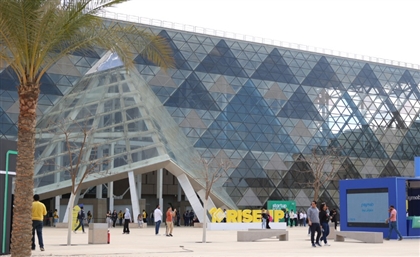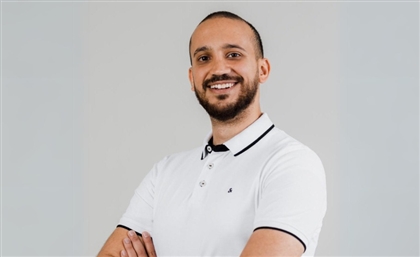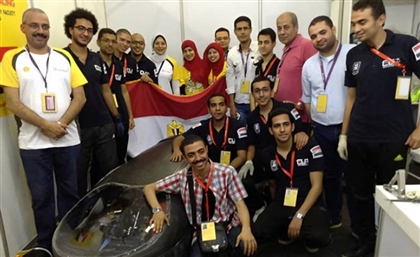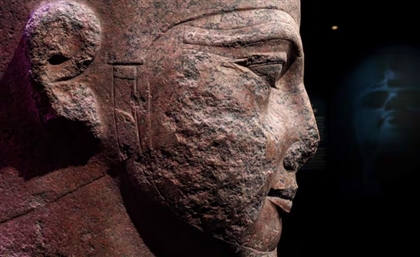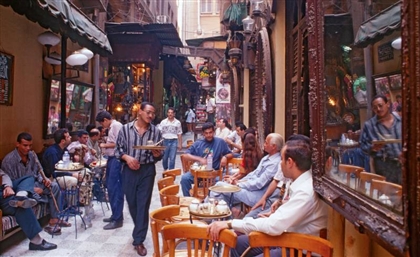Revisiting the Islamess
Eihab Boraie finds himself surrounded by women, marching to Cairo University. In the midst of the chaos, he seeks to understand whether the impending violence is avoidable.
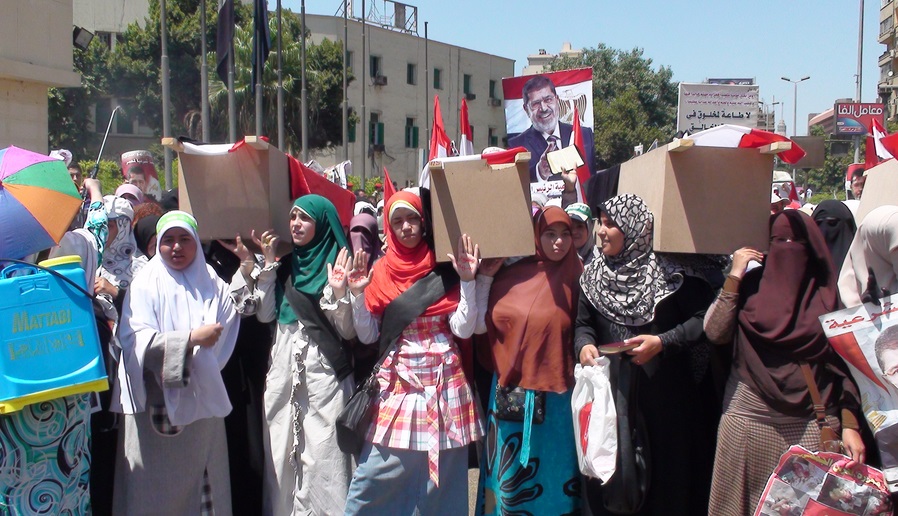
The day began and before I was fully awake, I found myself at a round table interview with Wael Fakharany, the regional manager for google in North Africa and the Middle East. I tried to conceal my paranoia during the interview, whislt getting to the bottom of how much Google really knows about me. As the interview continued, Fakharany was telling CairoScene how much he loves his job, and how being happy at work leads to innovation. I had a moment were I spaced out and started thinking about that. On the 23rd floor, in our office, overlooking the Nile, I heard the collective call of what looked to be a thousand ninjas marching. A glance out the window revealed sea of black enveloping the road just below me.
I instantly apologise to Wael, and bid farewell to the team. I too am happy with my job, and I felt the need to see where this march was going, especially since I know there is barbed wire and tanks on the road that could be used at any moment to close everything down. Once I reached to ground level, I instantly felt like I missed the memo on the dress code. At that moment my eyes were telling my mind that about 90% of the people in this march were women, many of whom wore Niqabs, meaning head-to-toe black, much like a ninja, but in a desert. Most the men taking part in the march were carrying what looked like pesticide tanks filled with water spraying women with aerosol hoses to keep them cool as they march. It was your regular Arab girls gone wild.

As I rushed through the crowd to get to the front lines of the march, I was disturbed by the number of children that were taking part. On the sidelines, some men and children were linking arms to clear a pathway for the group. I found it dispicable that children would be there, as everyone is waiting for the imminent clampdown. If and when this occurs, the probability of deaths and pandemonium will be high; a child would never have a chance amidst that kind of chaos. Maybe people are thinking that it would make the military look the villain, but at the end of they day their guardians should be taking some responsibility if not all of it.

I finally make it to the front lines of the march only to find out it is being led by women marching with fake caskets. Their desire to play on people's emotions created a chilling image, a future scenario that I hope will not come to fruition. Though some have perished in recent marhes, many of them innocent, let's hope that these caskets remain empty in the coming days.

As I continue marching, I realise that we are heading towards the University of Cairo; it seemed that I would be returning to the Heart of the Islamess. The last time I was there was when Morsi held power, and the streets of Tahrir and Itahedeya were veritable swarms of anti-Morsi protestors. I found that everybody was eager to share their (rather extreme) views, and I was overtaken by Brotherhood members looking for their five minutes of fame. I wondered if things had changed since my last visit.

I arrived with the front lines of the march, and was surprised to find that several hundred tents had been erected, and everyone was taking shelter from the relentless rays of the sun. It was eerie walking around and seeing what could be an eventual battle ground, completely devoid of people. I couldn't shake the dismal feeling that blood is going to be spilt here, and I hoped it wasn't while I was paying another visit.

As I was photographing the makeshift barricades, a heavily-bearded man approached me to confiscate my camera. After a bit of a struggle I convinced him that I am here to help and, not knowing what to make of me, he decides to solve the matter by escorting me to the censorship tent. I arrived to find a man sitting in a tent on a computer asking me to give him all my photos. Instantly, I tell him that is not possible, as I have thousands of pictures from day one on my camera and that his computer wouldn't have the space. I counter-offer by showing him the photos I had taken today.


Afraid he would delete the photos of their barricade set-up, I instead take 20 minutes to go through what seemed like an endless amount of random protest photos. Eventually the man gives up on me and tells me that protest photos are fine, but that I have to leave. I decieve him into thinking I'm on their side and would love to get some interviews explaining what they want to see happen. His eyes light up and immediately his tone changes. He brings me to a tent with about 20 fasting people who are laying down on plastic mats, waiting for the relief of the sunset. In the corner is one man working away on his Macbook... They generally seem to regard me with confusion, but all volunteer to be interviewed. I ask for their two best representitives and we proceed to sit down in a circle on the floor and start talking.
The aim of the interview was to find out if there is a solution to all of this that everyone could agree on. As always, the men state that the solution is to reinstate Morsi, which we all know to be an impossibility at this point. Trying to level with them in broken Arabic, they refuse to yield that there could be an alternate solution, which I had expected. I continue on to tell them that while I am personally against Morsi, I also disagree with the military's current mandate. It was a tense moment, but I feel that the latter statement was the only reason that my camera didn't get smashed (along with my face).
Wondering what could make them leave the streets, I continue to probe, asking them 'What if Morsi is let go, would you leave the streets?' They both replied 'no', saying that they don't necessarily care about Morsi; it's the democratic process they're fighing for, the fear that it will never exist if they don't fight his removal. I plead with them that throughout history, all democracies basically sprouted after years of bloodshed, and that we could change the game by looking to the past to avoid future massacres. Couldn't we just avoid all of that if we know that eventually all disagreements get settled at a table? Regarding the shootings, I asked bluntly whether they feel responsible to disarm anyone bringing weapons to the rallies. Don't weapons essentially ruin the cause and ultimately put everyone in harm's way? They respond that neither of them have seen weapons at any of their rallies, and if someone is caught with something that they are promptly ejected. They ask me to search the tent and dared me to find a weapon. Obviously, I didn't find any in the tent we were in, but the weapons seem to make their way in despite the effots of some to keep them out.
Our discussion went on for 22 minutes, and while this article sums up some important moments, I will be including the full unedited video at the end. They asked me to stay and break their fast with them, which suprised me since I had disagreed with much of what they said. I politely declined and headed back to the office.
To sum it up, I was never threatened or harmed, and I was left with a sense that I was talking to concerned Egyptians, not terrorists, although they did seem to be a bit brainwashed by the Brotherhood doctrine, or afraid to diverge from Brotherhood talking points. During the interview I couldn't help but wonder how many of these men are planning for violence, and how many were preparing to sit and wait in peace. Perhaps the most concerning was that fact that in the sweltering heat, despite countless warnings, it seemed like all these men looked certain they were waiting for death.
- Previous Article I Got Banged!
- Next Article Nomades Land




